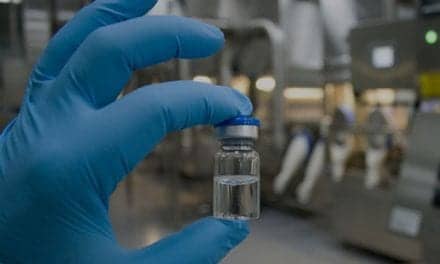Hough Ear Institute (HEI), a nonprofit based in Oklahoma City, announced that its pharmaceutical partner, Auditus LLC (Auditus), a wholly owned subsidiary of Otologic Pharmaceutics Inc (OPI), has entered into an agreement with Oblato Inc (Oblato). According to the company’s announcement, Oblato assumes exclusive rights to a drug known as NHPN-1010 to advance clinical research aimed at preserving and possibly restoring hearing.
Hearing loss can be caused when repeated, or overpowering, noise energy causes the ear to act like an engine in overdrive, which causes toxins to accumulate in the sensitive sensory cells and nerves of the inner ear. NHPN-1010 reportedly “short-circuits this cascade of events and soaks up the harmful toxins,” according to the announcement.
HEI and the Oklahoma Medical Research Foundation (OMRF) jointly discovered the NHPN-1010 technology and licensed it to OPI for commercial development in 2010. OPI led a successful Phase 1 clinical trial to demonstrate safety in 2015, the company says. HEI continued to conduct research with the drug, and recently discovered that it has the ability to regenerate and reconnect damaged nerve endings on surviving hair cells, which was once thought to be irreversible, the company reports.
As part of the agreement between Auditus and Oblato, Oblato is expected to initiate a Phase 2 clinical trial to evaluate the potential of the drug to prevent and treat hearing loss. Follow-up studies may test efficacy for treating tinnitus and improving ability to understand speech in the presence of background noise.
At this time, no drug treatment or cure exists for noise induced hearing loss (NIHL) or tinnitus.
Dr Richard Kopke, CEO of HEI, said a team effort brought the technology to this stage.
“The research team at HEI, Dr Robert Floyd and Manu Nair of the Oklahoma Medical Research Foundation (OMRF), as well as Dr Richard Gammans, CEO of OPI have been collaboratively performing extensive preclinical and clinical research of this therapy, thanks to generous research grants from the Department of Defense (DOD), which we hope will bring relief to millions of people worldwide who suffer from NIHL and cochlear implant trauma,” Kopke said.
“Funds from many generous donors and investors from the Oklahoma City community and beyond made the impossible possible through innovation,” Kopke said. “OPI investors including Innovation to Enterprise (I2E), the Chickasaw Nation, OMRF, INTEGRIS Baptist Medical Center (IBMC), the Oklahoma Life Science Fund, REHCO, LLC, Presbyterian Health Foundation; significant grant funding from the Oklahoma Center for the Advancement of Science & Technology (OCAST); as well as funding from generous donors worldwide have all played a significant role in moving this research forward. Under the leadership of Stan Hupfeld and then Bruce Lawrence, IBMC’s generous collaborative support established the foundation that led to these breakthroughs.”
Source: HEI
Image: HEI





